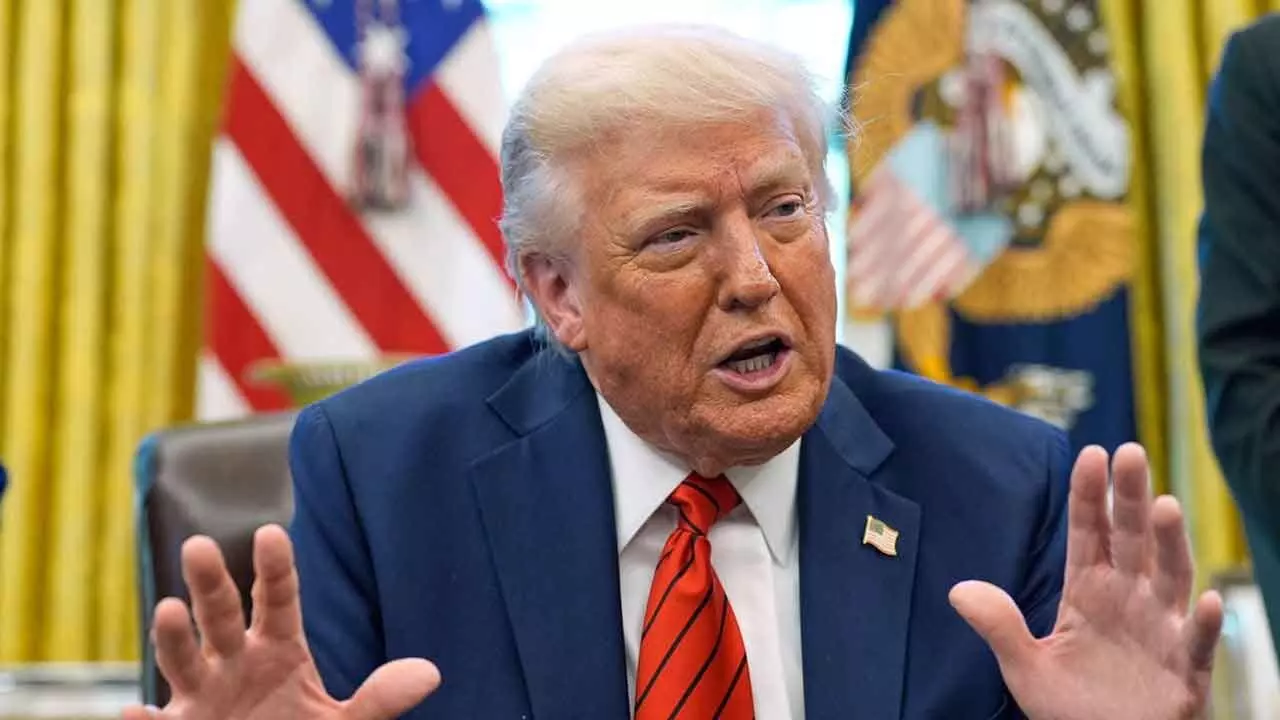Why Donald Trump Must Let Jerome Powell Do His Job
Amid rising economic challenges in the U.S., a new storm is brewing—not from global markets or inflationary trends, but from within its own leadership. Former President Donald Trump’s public attacks on Federal Reserve Chair Jerome Powell have ignited concerns that political interference could undermine the very foundation of economic stability at a critical moment
image for illustrative purpose

Amid rising economic challenges in the U.S., a new storm is brewing—not from global markets or inflationary trends, but from within its own leadership. Former President Donald Trump’s public attacks on Federal Reserve Chair Jerome Powell have ignited concerns that political interference could undermine the very foundation of economic stability at a critical moment.
Trump hasn’t held back, labeling Powell with everything from “a golfer who can’t putt” to “a total and complete moron.” These aren’t offhanded remarks from a frustrated citizen—they’re direct insults from the man who once nominated Powell to lead the Fed. Now, as the U.S. walks a tightrope between slowing growth and rising inflation, this kind of rhetoric is not just unhelpful—it’s dangerous.
Despite the noise, Powell continues to steer the economy through turbulent waters. He’s tackling what appears to be the early signs of stagflation: slowing GDP growth, persistent inflation, and creeping unemployment. From December 2024 to June 2025, GDP forecasts have dropped from 2.1% to 1.4%, core inflation has climbed from 2.5% to 3%, and unemployment is inching upward. This trifecta is eerily reminiscent of the 1970s, when short-sighted political pressure on the Fed led to years of economic pain.
Yet, Powell remains the steady hand at the helm—focused not on poll numbers, but on data. Unlike Wall Street or political campaigns, the Federal Reserve doesn’t operate on sentiment or headlines. It relies on policy discipline, even when that means making unpopular decisions.
Trump, meanwhile, appears to be playing a short-term political game. His threats to replace Powell, along with promises of sweeping tax cuts and new tariffs, may please a campaign rally, but they risk setting off an inflationary chain reaction. Tariffs drive prices up, which can fuel inflation, forcing the Fed to raise rates—tightening credit at a time when businesses and households are already feeling the pinch.
It’s a classic case of politics clashing with prudence. The Fed’s challenge right now isn’t just economic—it’s also political. When markets rally on rumors of rate cuts, and politicians demand quick fixes, Powell must stay focused on long-term outcomes, not immediate gratification.
Back in 2021, many called inflation “transitory.” That mistake cost Americans dearly, leading to the sharpest price increases in over 40 years. The lesson? Rushing into rate cuts or fiscal stimulus without a clear strategy can backfire. And Powell knows this better than anyone.
What the U.S. economy needs right now is not a showman at the podium, but a calm, competent professional at the controls. Jerome Powell fits that bill. His role is not to entertain or campaign, but to manage monetary policy with precision.
Mr. Trump has built skyscrapers and captured headlines. But it’s time he steps back and lets Powell build what really matters now—stability. This is no time for ego or interference. It’s a moment that calls for focus, for responsibility, and above all, for letting the experts do their jobs.
Leadership isn’t about who speaks the loudest. It’s about who delivers when it counts. And right now, Powell deserves the room to do just that.

